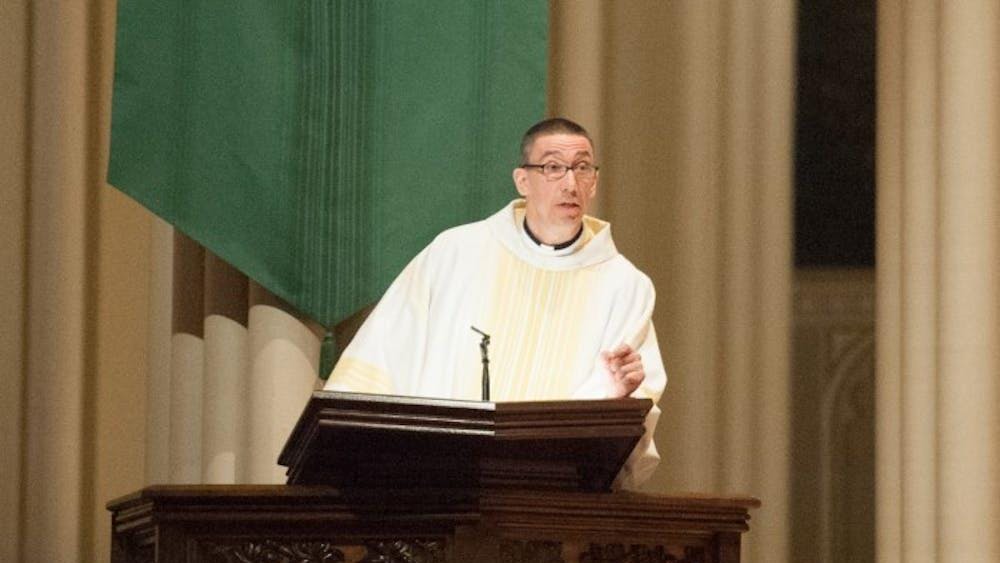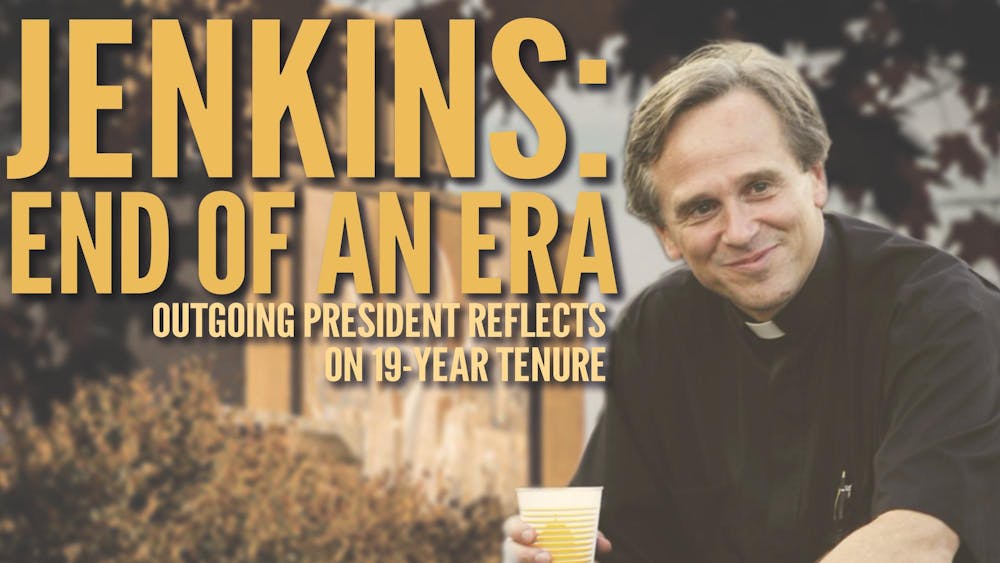The Notre Dame student senate gathered to discuss changes to the Executive Programming Board, adjustments concerning the spring 2021 schedule, a formal disapproval of University President Fr. John Jenkins’ actions during his visit to the White House and the adjustment of hall visitation policies in order for the betterment of student mental health during its weekly meeting Thursday evening.
The meeting began with an executive announcement surrounding potential changes for the spring semester. The administration is currently working on a creating potential break during the spring semester, acknowledging that the condensed first semester is leading both faculty and students to experience feelings of burnout.
Prior to the general orders of the meeting, members of the student senate discussed the University’s improved responses towards the pandemic, specifically on aspects of adaptability, transparency, testing and mental health.
The first order was a resolution to amend the constitution of the Undergraduate Student Body to transition the Executive Programming Board from a Student Union Branch to an Article II Board, presented by junior parliamentarian Thomas Davis. Senior and chief of staff Aaron Benavides said that while is not a trivial task to amend the article of the constitution, the new resolution did not align with the vision of the original proposal.
“I don't think that the executive committee was what I had envisioned and originally proposed,” Benavides said. “I think that's something that the sponsors and I would be very happy to go back to, you know, accept some of them are recommendations of the Committee on the constitution and their wisdom that they offered to us. But again, I think it’s a middle path.”
Ultimately, however, the senate rejected this order.
The second agenda item was an order to pass a resolution adjusting the spring semester schedule. Due to the ongoing COVID-19 pandemic and the subsequent modification of the academic calendar for the spring semester of 2021, this order was passed unanimously by the student senate. This allows for the suspension of class officer elections, election for senators and senate members serving a one-year term beginning on April 1.
The calls for the action of the Judicial Council Election committee, which would make petitions available for the student body president and vice president elections on the first day of classes of the spring semester to be due at noon on the Friday of the following week, while completing the elections of class council officers and residence hall senators by March 25 and 30, respectively.
The third order followed the previous week’s senate meeting regarding Jenkins’ noncompliance with University health and safety guidelines while attending the nomination of Notre Dame law professor Amy Coney Barrett for the Supreme Court in the White House Rose Garden Sept. 26. The University announced that Jenkins had tested positive for COVID-19 Oct. 2. The order called for a resolution formally denouncing Jenkins’ violations of University health policy and encouraging further action.
The issue of whether to pass a formal denouncement of Jenkins drew debate among the senators. Some agreed that while Jenkins should face consequences for failing to abide by health and safety guidelines, the call for him to resign was extreme.
“I think everybody knows that actions should have consequences,” sophomore and Stanford Hall senator Patrick Lee said. “And while we did regard the resolution last week as slightly extreme, I thought there was a pretty valid point made — lots of students are going through disciplinary processes right now because they didn’t follow the rules. I think it’s important that we stand by the fact that actions have consequences.”
However, during the debate, others disagreed. Some argued that Jenkins threw Notre Dame into an unnecessary controversy. In the end, the order passed, with an estimated 75% of the senate voting “yes” on the resolution.
Following up to the vote, Lee suggested some further areas for potential improvement regarding the University’s COVID-19 policies.
“It is a really well written resolution — the student government is larger than the senate, and works with a lot of other departments as well and with other public spaces to open up a little bit more as the weather is cold,” Lee said. “Let’s strike while the iron is hot and pool all of the resources together and say, ‘How do we make the last few months of the semester as safe as possible?’”
The senate further agreed that the idea of a town hall — where students voice their concerns directly to Jenkins — would be an effective way to foster conversation and offer constructive change.
To wrap up the meeting, the senate called a resolution encouraging the further adjustment of current on-campus residence hall visitation policies to promote student well-being while continuing to prevent the spread of COVID-19. As the weather gets colder, preventing students from socializing safely outside, the senate agreed unanimously that the Division of Student Affairs should further adjust residence hall visitor policies to allow non-resident visitors to be permitted in common spaces, all while observing health and safety guidelines.













